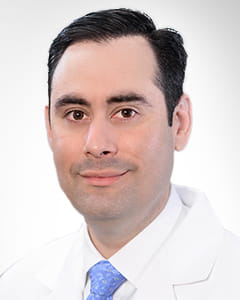Gastroesophageal reflux disease (GERD) is a condition that allows food you’ve eaten to work its way back up through your esophagus. It’s one of the more common conditions in the United States, affecting millions of people. But not everyone who has it realizes it.
The danger of GERD is that the partially digested food contains stomach acids, which can damage your throat, voice and lungs. And in some cases, it can lead to cancer. Technically, “silent” GERD isn’t an actual disease. Instead, it’s a term that describes cases of gastroesophageal reflux disease where the typical symptoms are absent.
That lack of obvious symptoms creates its own issues, since you will be much less likely to receive treatment if you don’t know there’s something wrong.
Do You Have Silent GERD?
If you have GERD, there is a problem in your esophagus involving the muscle known as the lower esophageal sphincter, which acts as a valve that keeps food in your stomach until it is digested. If that muscle becomes weakened, food and stomach acid travel in the wrong direction, causing pain and inflammation in your esophagus and, in some cases, your throat and mouth. Typically, silent GERD causes a range of symptoms, including:
- Asthma symptoms: This could include chronic coughing, wheezing and trouble breathing.
- Backwash: You may notice a sour taste in your mouth from acid regurgitating into your throat after eating.
- Burning sensation: The acid burns the tissue in your esophagus, causing a burning sensation in your throat.
- Hoarseness. This can result from constantly clearing your throat.
- Postnasal Drip. This can be mistaken for allergies.
- Sore throat: Your throat may feel sore or like it has a lump, making it harder to swallow.
These symptoms, which are shared by many other conditions, will vary from person to person. And in some instances, GERD symptoms won’t be noticeable enough to draw attention.
GERD’s Cancer Connection
GERD rarely leads to cancer. But your risk increases if it goes untreated for a long period of time. This can lead to a condition known as Barrett’s esophagus, caused by your body’s repeated attempts to heal the acid damage in your esophagus. Your body essentially replaces the tissue in your esophagus with new tissue that’s similar to tissue found in your stomach.
Barrett’s esophagus doesn’t cause any specific problems. But it does increase your vulnerability to esophageal cancer, a rare disease that represents about 1 percent of U.S. cancer cases. The cancer can be challenging to treat, since it is often not detected until it becomes more advanced and triggers notable symptoms, including difficulty swallowing, unexplained weight loss, vomiting with streaks of blood and blood in mucus while coughing.
Protecting Yourself
Everyone experiences acid reflux at some point in life. Often it’s caused by drinking too much or overeating – think about those large holiday meals. It becomes a more serious matter when it starts to become a detriment to your quality of life. If you are having three or four episodes a week, that’s when it becomes medically significant.
When people experience acid reflux, they often turn to over-the-counter medications. But it’s important to know that these medications don’t prevent reflux. They simply offer relief from the symptoms by countering the acid from your stomach. Unfortunately, the bile and other contents coming out of your stomach may still be causing damage to your esophagus – even if you aren’t feeling any discomfort.
If you are constantly taking these over-the-counter medications, it’s time to see your doctor to get a better handle on what’s happening with your esophagus and stomach. When medications and lifestyle changes can’t put a stop to your GERD, there are surgical options available.
Choose to Stay in Touch
Sign up to receive the latest health news and trends, wellness & prevention tips, and much more from Orlando Health.
Sign Up for HealthBeat





